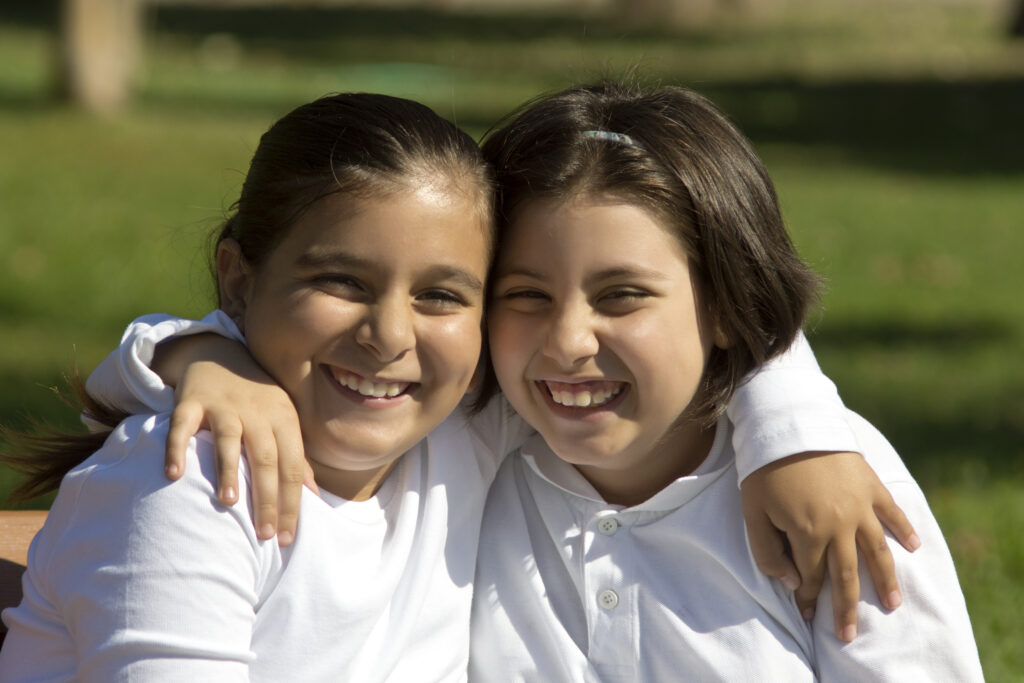For the next 48 hours, the Aleph Institute is fundraising $1.5 million to keep the gears of these important programs in motion. To support your brothers and sisters going through a hard time and to let them know that they are not alone or forgotten, please visit alephhope.org
A toddler is playing on the foam Alef-Beis mat as her proud mom and dad watching her build a block tower and then knock it down again. Her baby sister, just six months old, has her head on her father’s shoulder. At the air hockey table, a teenager is winning against his father.
They laugh when the puck goes flying out of bounds and lands on the nearby lawn. A young girl is painting a canvas with her siblings. She chooses bright yellow for the background, and then her father writes “You are my sunshine” on it.
She runs to show her mother.
It’s visiting day at camp, with happy families together on the sprawling green hills, catching up about their time apart. Except that at this camp, a prison in upstate New York, visiting days don’t usually look like this. Usually, it means hanging out on the chairs in the visiting room. If there’s good weather, maybe a few minutes on the attached patio. If it’s a good day, the guards will put out a stack of board games and playing cards.
Today is more than just a good day, though. There are board games and playing cards. There is canvas making and arts-n-crafts. There is an air hockey table, ping pong table and electric basketball. There is live music, singers, and volunteers who came from New Square just to dance.
Instead of limited hours, families had an entire day. Instead of chairs and tables, families had a fair and access to rolling lawns. Instead of being that family with dad in prison, families were just another happy bunch enjoying the warm summer day.
When the children first came with their moms, they went straight into the visiting room and ran to their dads with arms opened wide. They know their way around here.
When we first arrived, we followed the yellow footprints from the lot, past the tennis court, alongside brown cabins. The slight breeze outside carries the scene of grass and fresh country air. The grounds are beautiful, which is jarring when you understand their purpose. Our cars are just feet away from the tennis courts where men in prison garb are playing. The close proximity to normalcy makes the experience more stinging.
Before the day started, the men spent a few minutes with a therapist Aleph brought down and then sat down to write letters to their loved ones. One man asking for one new card after another. “I keep getting it wrong,” he said as he ripped another vetoed draft and let the pieces flutter into the trash can. Something inside twisted as I watched him struggle over each word.
The feeling visited again and again throughout the day. Eventually, it became familiar.
Like when I was speaking to a woman who brought her kids to visit their zaidy, and there were tears pooling in the corners of her eyes. “I bring my kids often for my father’s sake, but they hate it. They drive a long time just to sit around bored. I’ve never seen my kids actually happy to be here,” she said, “and I can’t tell you how much it means to my father.” The next day, her mother called the Aleph office. “We all had such a great time,” she said. “The grandkids want to know if you can do it again next week.”
Or when I watched a teenager play ball with his father, something he was doing for the first time in nine years, only because Aleph arranged special permission to use the courts. The two of them spent most of the afternoon rotating between different fields—catching up on lost years and storing up for the times to come.
Or when a father danced with his little boy on his shoulders…the director of Aleph’s Family Services shot hoops with some of the boys, the Aleph staff talked and painted and played with each of the families…a dad walked around the patio with his little girl pushing her doll in the stroller…a mom chased her little ones in a game of tag.
Moments like that send shivers. Knowing that the smiles are only a brief pause in their usual lives, that everyone was going to say goodbye soon and go back—to their narrow cots in the prison dorms, the grocery stores where people didn’t know how to greet them, the school halls where stigma trails behind them…
When the day ends, they’re going back home—to a house with no dad around and the weight of his incarceration everywhere they look. But for that brief time, kids were just kids, moms were just moms, and dads were just dads, and families were together.
They’re going back to their harsh reality, but for one day, they had something else as well, an abeyance.
More than 1,400+ families receive guidance and assistance from Aleph’s Family Services department, including things like therapy, grocery and utility bills, summer camp scholarships, arrangements for bar and bas mitzvas, vocational scholarships, life coaching, personal support, and events like the recent unity day.











